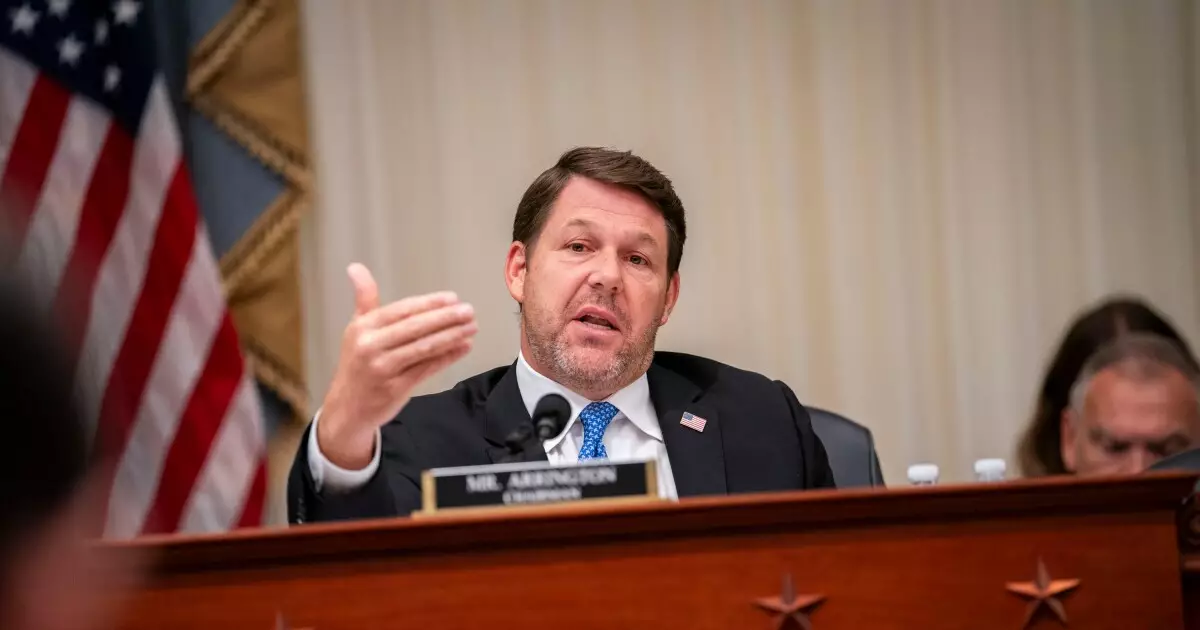The recent shift in the U.S. budgetary landscape, marked by the expected deliberation in the House of Representatives regarding the fiscal year 2025 budget, has ignited inter-party frictions that merit serious reconsideration by conservative lawmakers. The Senate’s earlier passage of a budget resolution, which some describe as an imposition rather than a logical extension of the tax cuts initially promised, highlights the delicate balance the GOP must maintain to appease a diverse caucus while pursuing substantive fiscal reforms. Agents of change in the conservative camp must ask themselves: Are they conceding too much ground for the sake of political expediency?
Historically, Republicans have prided themselves on their commitment to fiscal responsibility and limited government. Yet, with vocal opposition already emerging from within their ranks regarding the Senate’s proposal, the contours of modern conservatism are undoubtedly being tested. Presenting a budget that sets a meager $4 billion in cuts relative to the House’s ambitious $1.5 trillion limit invites rightful skepticism.
The Threat of Backtracking on Tax Cuts
What should alarm fiscal conservatives the most is the potential compromise on tax measures seen in the Senate’s plan. The Senate’s reliance on a ‘current policy baseline model’—which essentially abstracts the costs of extending the Tax Cuts and Jobs Act (TCJA)—is a move laden with risk. It invites a plethora of consequences, including the possibility of limits being imposed on municipal bond tax exemptions. For supporters of tax reform, such outcomes would not only undermine stability in the municipal market but also erode the public’s trust in conservative promises of fiscal prudence.
While tax cuts are branded as extensions of Trump’s campaign platform, including ludicrous ideas like eliminating taxes on tips, they carry a dangerous balance of increased deficit projections. An increase of $2 trillion in deficits over ten years could send ripples through the economy, undermining the very fiscal conservatism Republicans tout as their cornerstone. The ramifications extend not just economically but politically, compromising the party’s identity and adherence to values its base has come to expect.
Leadership in Crisis: A Divided GOP
The recent round of budget negotiations isn’t merely a series of fiscal discussions—it is indicative of a larger ideological crisis within the Republican Party. The leadership reaching out to its members, urging consensus through a ‘Dear Colleague’ letter, reveals an unsettling truth: the GOP is in disarray. When Speaker Mike Johnson emphasizes the urgency of passing this resolution—despite known opposition from influential legislators—what’s actually at stake is the party’s cohesion and future political capital.
House Budget Chair Jodey Arrington’s outright dismissal of the Senate’s version as “unserious and disappointing” presents an embarrassing rift that could very well weaken the party’s negotiating power. If core principles are sacrificed to appease a perceived moderate angle, conservatives could risk alienating the very electorate that demands accountability and robust fiscal discipline. The discontent within the ranks is palpable; conservatives must ask if sacrificing principles for short-term victories will ultimately lead to long-term devastation.
Calculating the Risks of Reconciliation
The reconciliation process, which allows the GOP to push through significant legislation with a simple majority, could spell either resurrection or ruin for the party. Utilizing this method to push through a bill laden with compromises could alienate grassroots supporters who hold firm to more traditional conservative values. The prospect of offering a larger debt ceiling without responsible fiscal measures simply erodes credibility.
Given this precarious state, leadership must pivot back toward its roots, embracing a clear vision that balances fiscal cutbacks with strategic growth measures. A divergence into tactics that appease Democrats or virtuous principles will only deepen dissatisfaction among conservatives, drawing criticism and reaction from constituents that could be felt in future elections.
The implications of the House’s decision on the budget resolution will reverberate through the corridors of power and the electorate alike. Will they emerge united, or will this be the event that fractiously marks a new era for the GOP? This is a defining moment—a time to reflect on what it truly means to champion conservative values in Washington.

